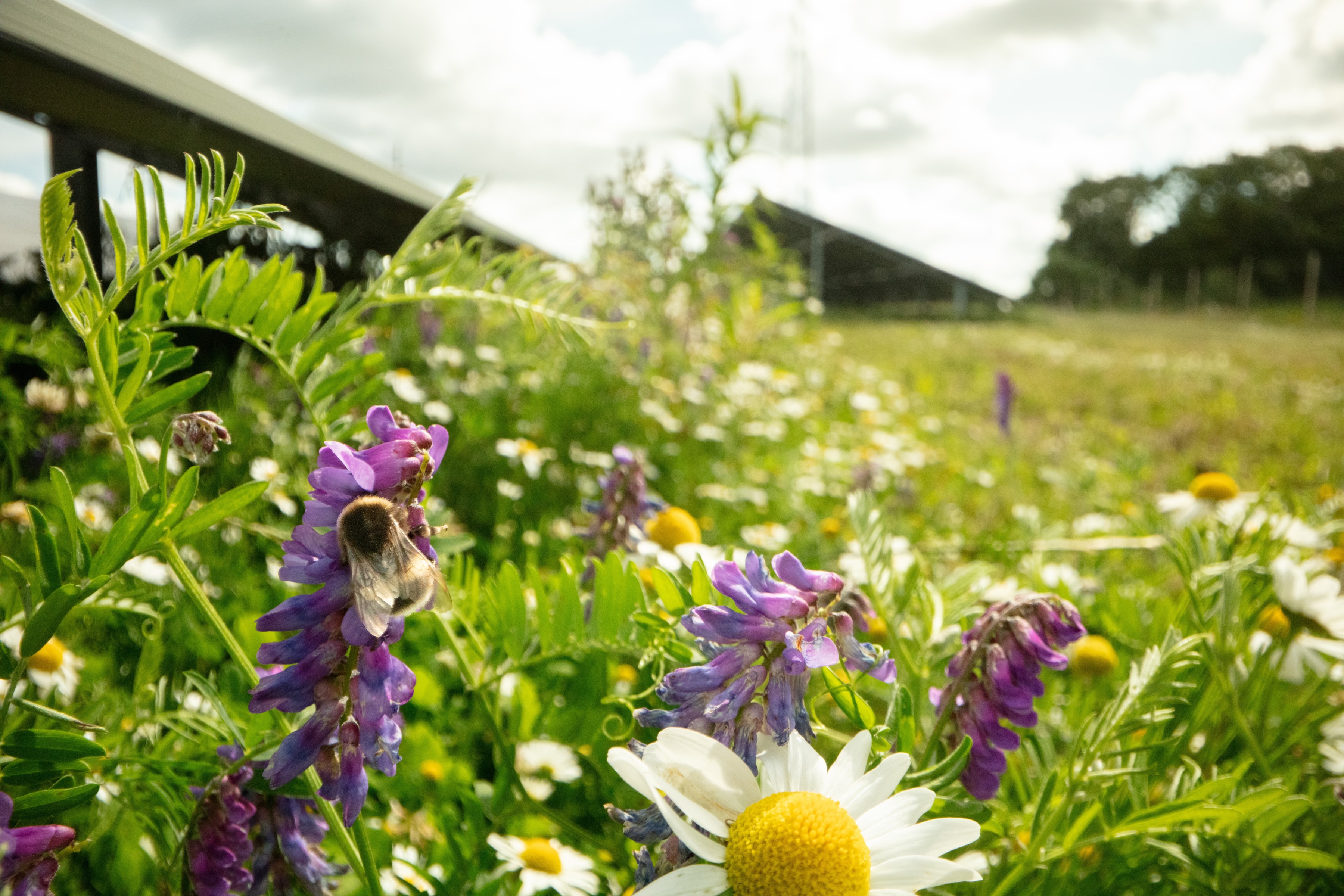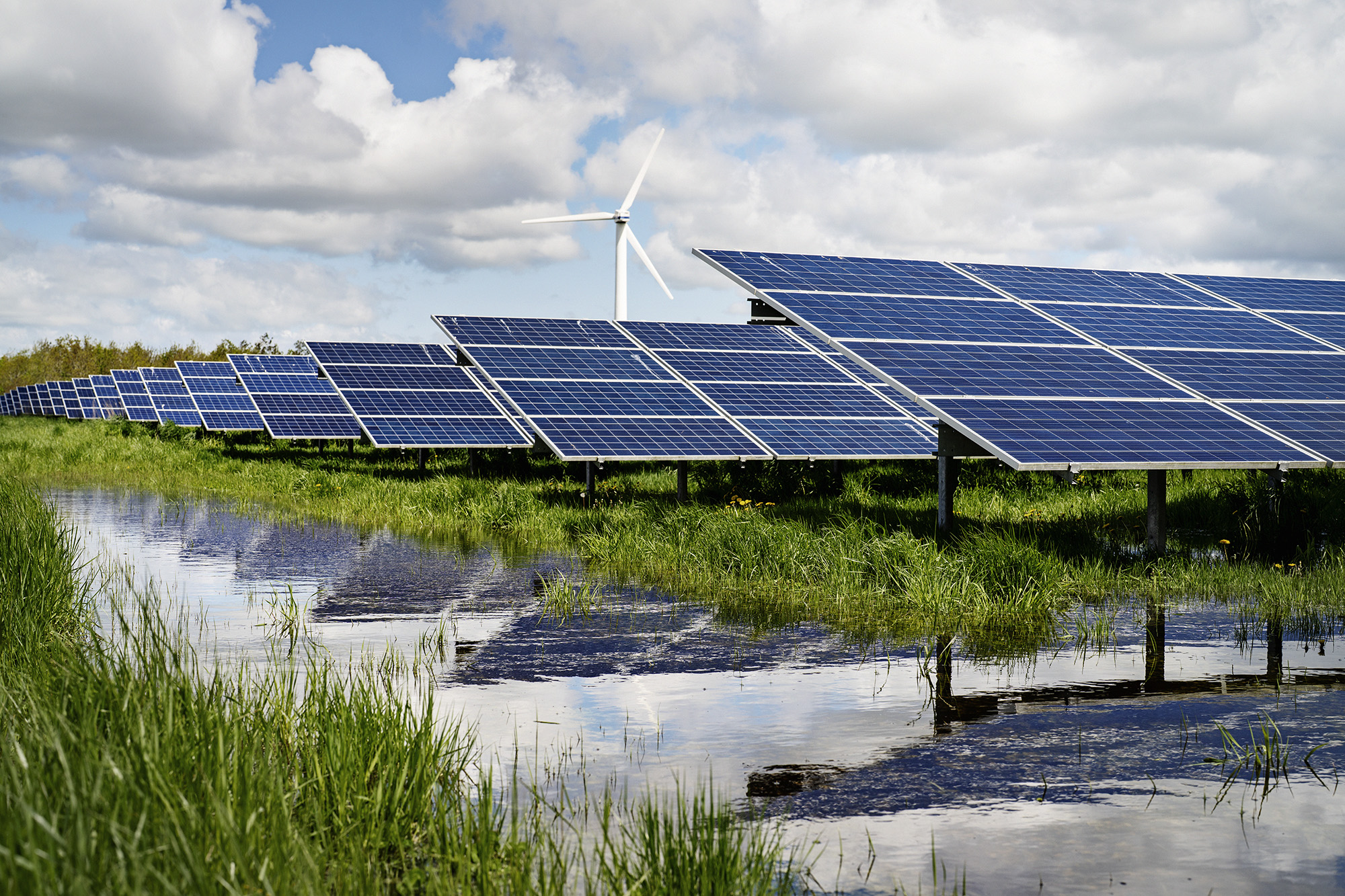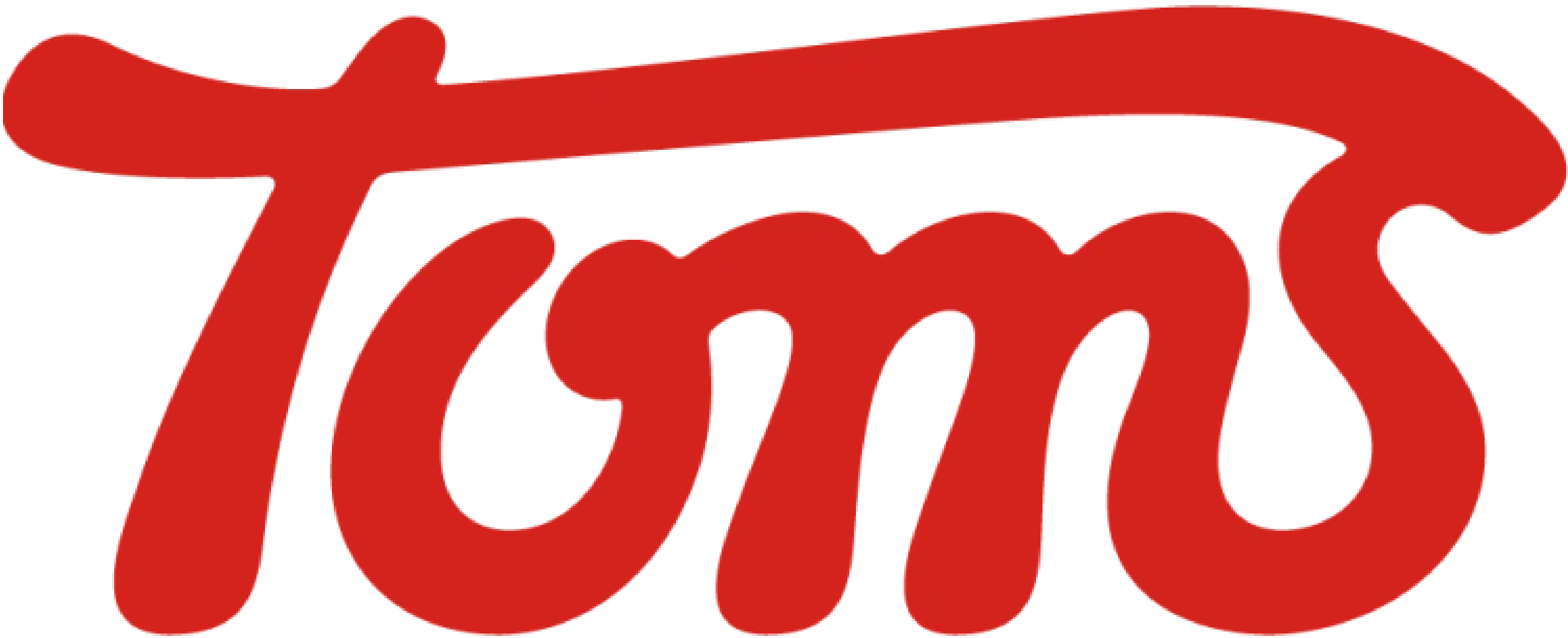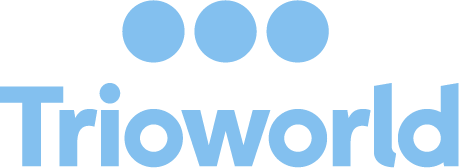Hoby Solar Park
Hoby Solar Park aims to provide the electricity grid with additional green energy and ancillary services. The project also showcases how even a small commitment from several companies can have a concrete and positive effect on the green transition.
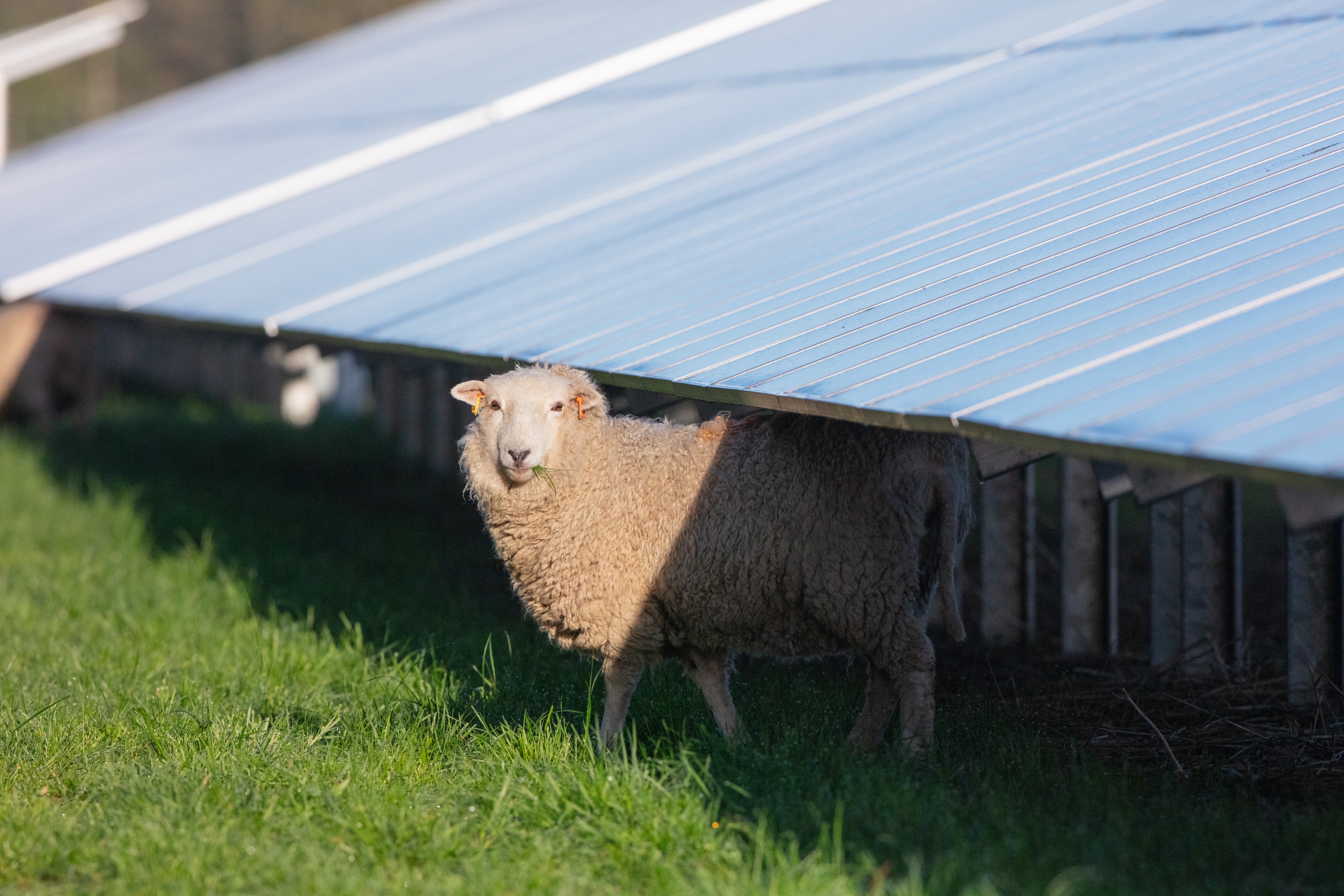
Solar park facts
-
69
GWh
expected annual output
-
65
MWp
capacity
-
55
hectares
total project area
-
43,000
Danes
equal to electricity consumption
Like-minded companies pool electricity needs
Eight companies from various industries are purchasing renewable energy from Hoby Solar Park in Denmark. They offtake energy through individual contracts with Better Energy. We facilitated this setup to enable businesses of all sizes to enter Power Purchase Agreements (PPAs), allowing them to contribute to the green transition by offtaking both large and small amounts of renewable energy.
Who made Hoby Solar Park a reality through power purchases
Gathered to celebrate new green energy
Hoby Solar Park park was successfully connected to the Danish electricity grid in late 2023. In 2024, an official celebration and guided tour around the park marked the milestone.
The Mayor of Lolland Municipality were among the speakers. He welcomend the guests and opened the event.
We were happy to gather a diverse crowd of attendees at our solar park, highlighting the importance of many different stakeholder coming together to power the green transition: PPA partners, financial partners, local business representatives, and members of the press.
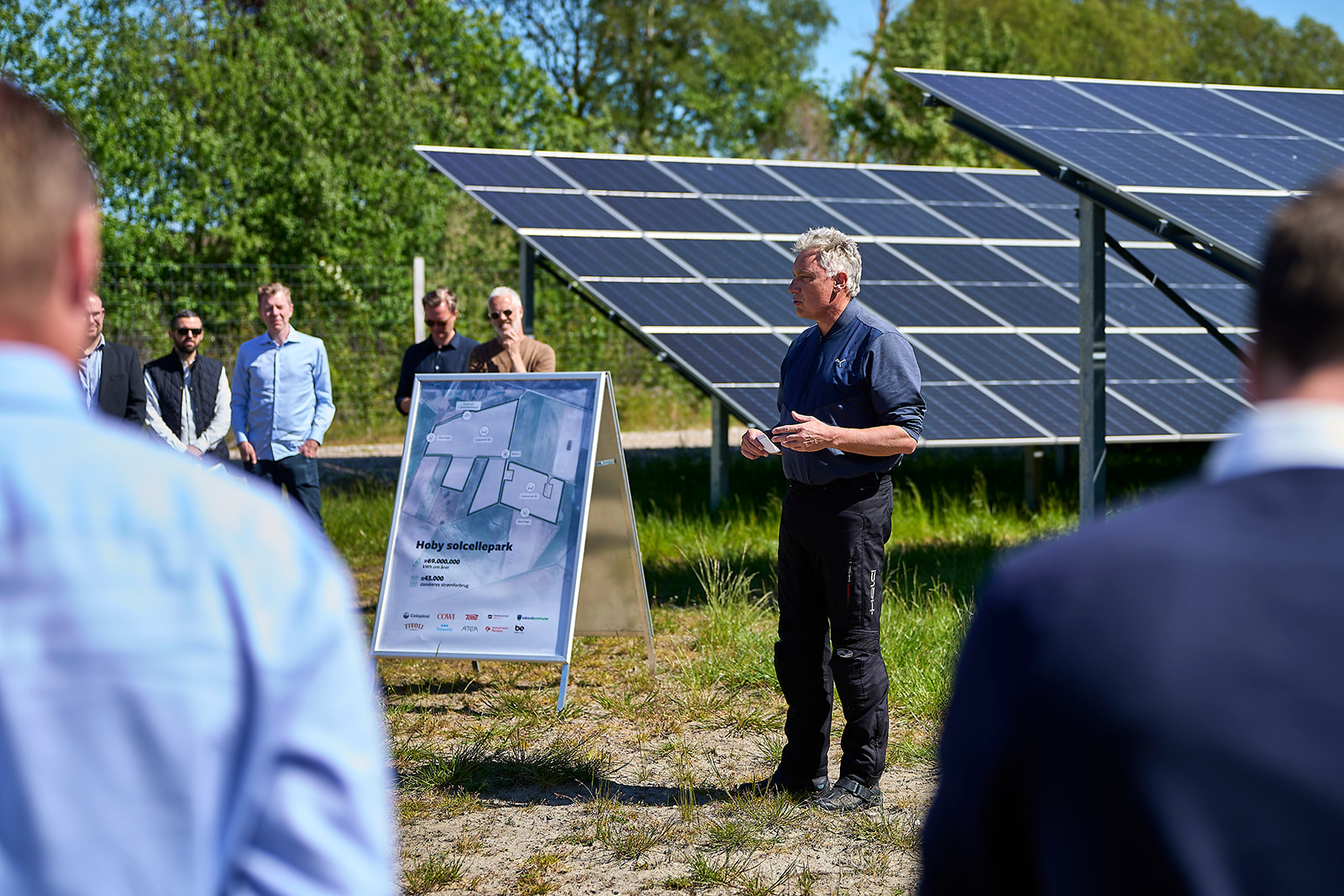
Landowner chose to support harvesting solar power
Hoby Solar Park is built on land leased for 30 years from landowner Niels Frederik Skov Jensen. He decided to convert from agriculture to energy production to seize the opportunity to follow the market development and needs. Niels Frederik Skov Jensen says:
”My family has had the land here for many generations and we have grown all kinds of different things. Whatever was needed at the time. Right now, there is a development where there is a need to produce green electricity, so we are producing that now."
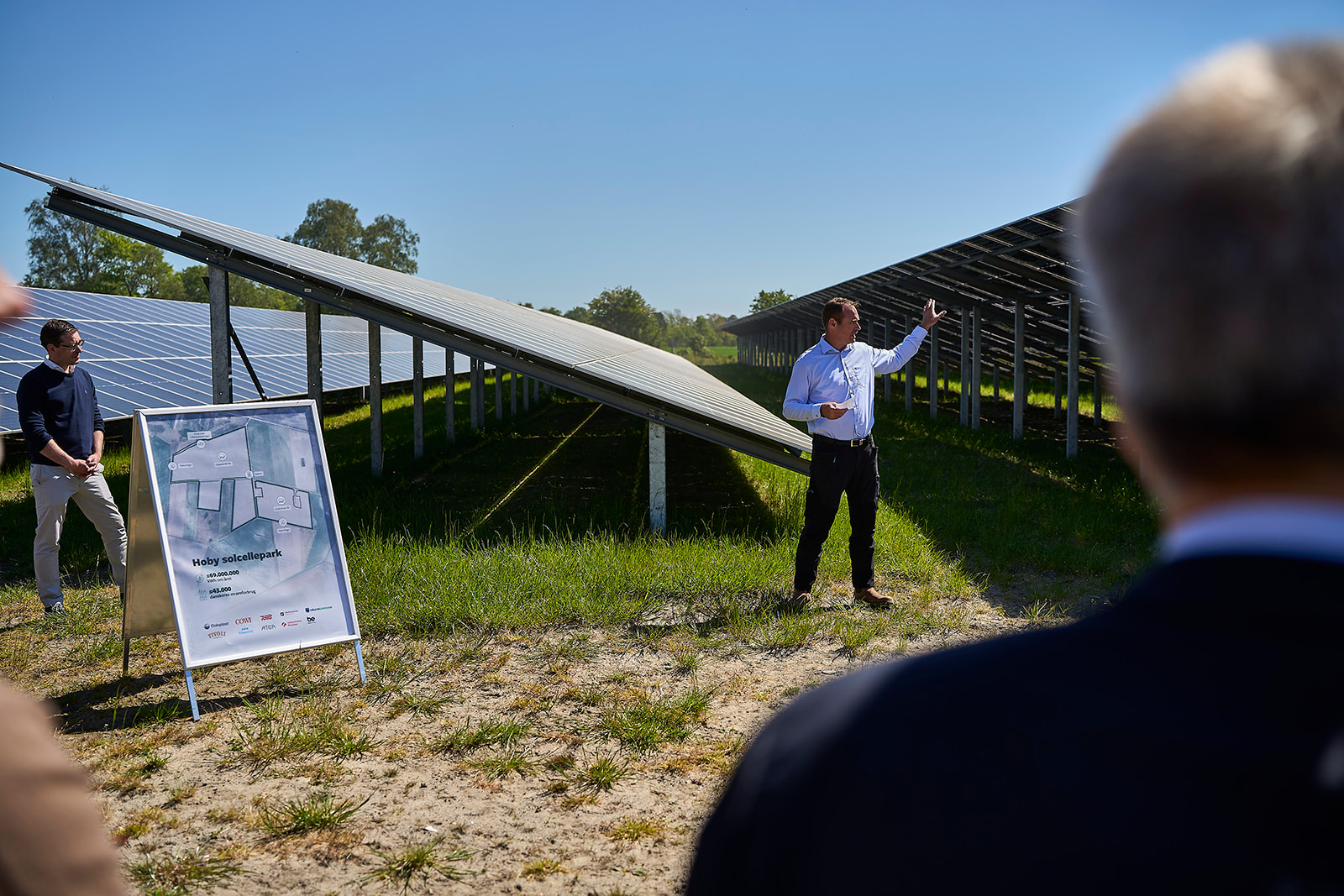
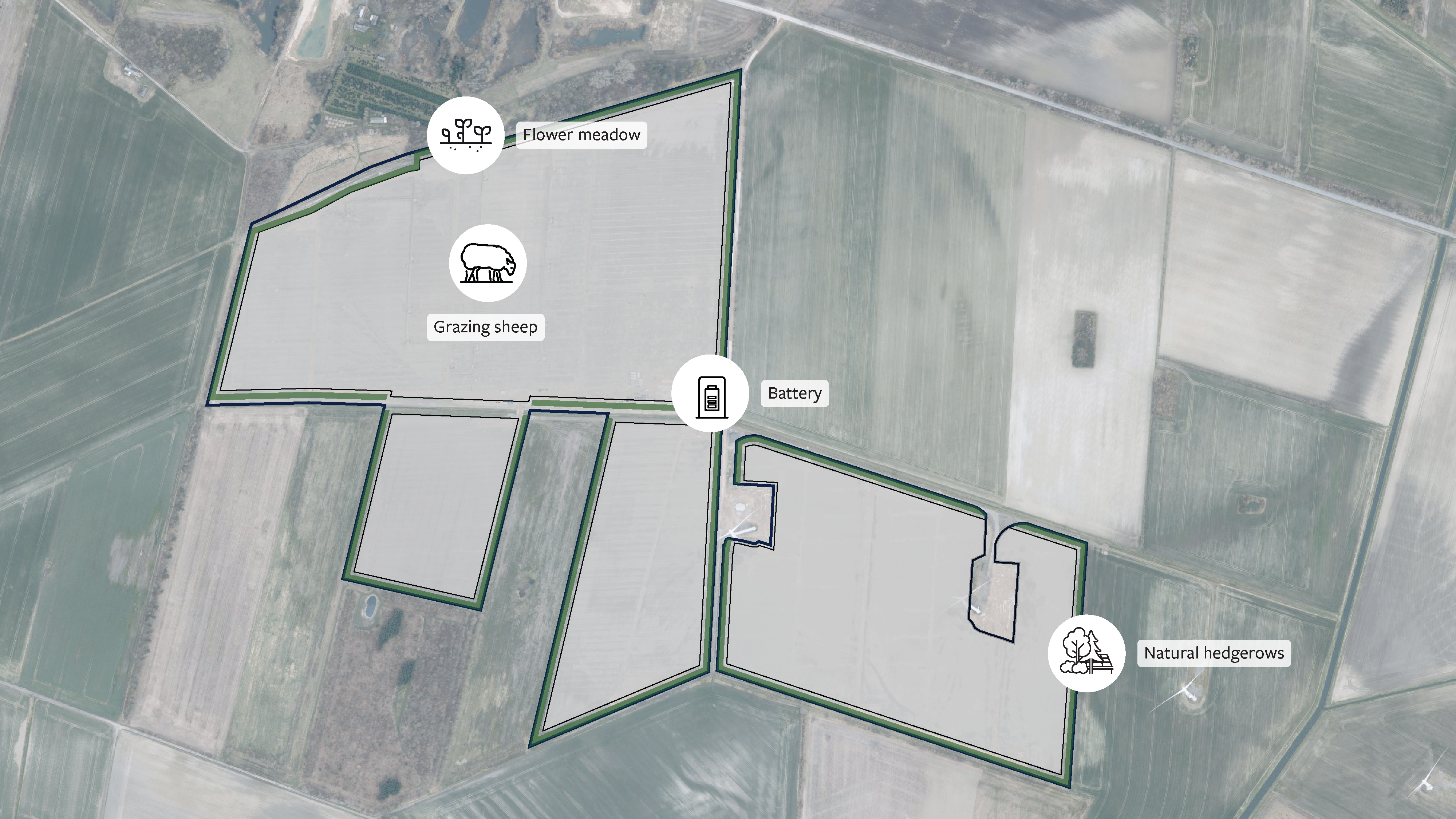
Community and nature initiatives
| Flower meadow |
Establishment of a flower meadow with a special seed mix, which will become a pantry of food for insects. |
|
| Natural hedgerows |
Establishing planting belts around the solar areas of the park, creating visual shielding using native trees and shrubs. |
|
| Grazing sheep |
The sheep make sure that grasses and herbs do not grow up and shade the panels. The animals get shelter from the solar panels and fresh grass, while the farmers take advantage of the open spaces. |
|
| Battery |
A 10 MW lithium-ion battery system presents an opportunity to facilitate grid operators’ need for system flexibility. |
Large hybrid battery system in Hoby Solar Park to support flexibility
Hoby Solar Park generates green energy and can also provide frequency regulation services to the electricity grid thanks to its 10 MW, 12 MWh Lithium-ion Battery Energy Storage System (BESS). It will be one of the first large-scale hybrid Photovoltaics (PV) and BESS systems in Denmark. Frequency regulation services typically involves direct and rapid adjustments to power generation or consumption to maintain the grid's frequency within a specified range.

